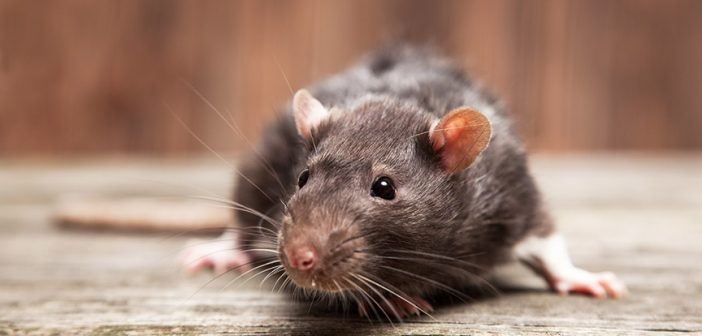by Sarah Tyler
American culture has taught us that rats are something to be feared and avoided. You see them in streets, sewers, and if you find one in your home, you’ve got big issues. These creatures carry disease, are filthy, and could bite you. And though those things may be true on the surface, those types of descriptions don’t apply to domesticated, or “fancy” rats as they are referred to. These rats have been bred for favorable qualities, much like how dogs have been domesticated from wolves over hundreds of years. They are docile, smart, affectionate and playful. Depending on the rat, they can learn a new trick in as little as two training sessions.
 So what, besides them not being as dangerous as perceived, makes these little guys good pets? Well, their best attribute is their affectionate and social behavior. Rats tend to really enjoy being with their human friends. Once a rapport is established with the rat (which may take a little time to create through daily interactions), she will snuggle, sit on your shoulder and play with you. And even though rats tend to be nocturnal, their schedule will eventually adjust to mimic the times when their human is home so that they can get as much interaction as possible.
So what, besides them not being as dangerous as perceived, makes these little guys good pets? Well, their best attribute is their affectionate and social behavior. Rats tend to really enjoy being with their human friends. Once a rapport is established with the rat (which may take a little time to create through daily interactions), she will snuggle, sit on your shoulder and play with you. And even though rats tend to be nocturnal, their schedule will eventually adjust to mimic the times when their human is home so that they can get as much interaction as possible.
Rats require about one hour of uncaged time a day to get exercise, explore, and play. This helps to keep them from getting overly bored and strengthens the bond between owner and pet. However, during their cage time, rats can be very lonely so it’s recommended to get a rat of the same sex to keep them company. Rats can become pregnant within twenty-four hours of giving birth, so it’s important not to get a pair that has the possibility to mate, as things can get out of hand quickly.
Rats are very intelligent, which makes them easy to train. The level of intelligence can vary significantly by rat, but overall, they are smart little creatures. They require lots of toys in their cages to stimulate their brains during cage time. Often, toys from the parrot department in a pet store work great! Ladders, ropes, balls – all of these items create an enjoyable space for your rat. But be careful what type of cage you use, because rats are very smart and can get out through tight openings. Most wire cages work fine, but keep an eye out early on when introducing your rodent to her new digs to make sure she isn’t planning a great escape.
On top of being friendly and smart, rats are also very clean. They hate being dirty and will spend hours grooming themselves daily, much like a cat. And for hard to reach places? Rats will form grooming lines where their buddies will clean the parts of their bodies that they are unable to reach. If you’re lucky, you can lean your head nearby, and they will add you into the line-up. Nothing says “I love you” like cleaning your owner.
If you’re trying to decide on whether to get a rat or not, consider these few important points:
• Rats have a short lifespan – between two and three years.
• Bucks (male rats) are lazier with rougher hair, and does (female rats) tend to be more playful with softer hair.
• Rats often play well with family pets.
• Rats are good for children, but must be carefully monitored so they are not injured by younger children.
• Rats prefer to be caged in a room, off the floor, where they can observe daily life.
• Rat cages need weekly cleanings with spot cleaning two or three times in between.
Rat owners often compare the behavior and relationship with their rat to that of owning a dog. They are loyal, can learn their name, eat table scraps (though be sure you only feed them healthy scraps as weight gain can be a serious issue), play, and lick with affection. Their inquisitive nature and gentle spirit make them great companions, especially in small living quarters




